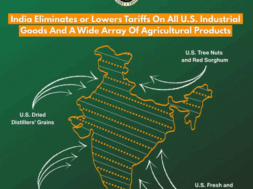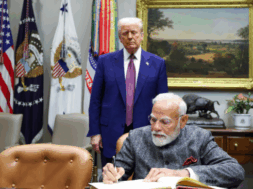
Roving Periscope: Under China’s pressure, Pak to ‘relaunch’ anti-terror drive
Virendra Pandit
New Delhi: Nearly bankrupt and clueless, Pakistan will once again launch a new military operation to curb increasing “armed attacks” within the country, but this decision has come only because of the pressure from its ‘all-weather’ friend China which has refused to invest more funds until the Islamist country, infested with state-supported terror groups, stops recurring terror attacks on Chinese personnel working on the now-stalled China-Pakistan Economic Corridor (CPEC).
Pakistan’s top political leadership, ably led by the military bosses, has approved the fresh drive, called “Azm-e-Istehkam” (Resolve for Stability), the media reported on Tuesday.
The announcement came after Prime Minister Shehbaz Sharif, who returned empty-handed from China recently, led a review of the country’s “counter-terrorism” operations over the last weekend, especially the National Action Plan adopted in the aftermath of the December 2014 attack on Peshawar’s Army Public School. Over 140 people, mostly students, were killed in the attack, which was claimed by the Tehreek-e-Taliban-Pakistan (TTP).
The new anti-terror drive will not be India-specific and sponsored terror attacks in Jammu and Kashmir will continue. It will rather focus on domestic security threats and armed fighters crossing over from Afghanistan, amid mounting tensions between Islamabad and the Taliban rulers in Kabul. A statement issued by Sharif’s office on June 22 referred to plans to “intensify” efforts to curtail “terrorists” through regional cooperation with Pakistan’s neighbors.
“The campaign will be complemented by socioeconomic measures aimed at addressing genuine concerns of the people and creating an environment that discourages extremist tendencies,” the statement added.
The new campaign is merely the latest in a series of similar military operations that Pakistan launched in the past to “crush” armed violence. In April 2023 also, Islamabad had announced a military operation during Sharif’s previous tenure as the PM, but an official military campaign never commenced.
While the launch date of Operation Azm-e-Istehkam has not been formally declared, the announcement comes at a time when the country has seen a dramatic surge in violent incidents over the last 18 months. Most of these attacks are claimed by TTP, which is ideologically aligned with the Taliban in Afghanistan.
The TTP unilaterally ended a ceasefire in November 2022 and Islamabad repeatedly accused Kabul of harboring them, a charge the Taliban government, which returned to power in August 2021, has consistently rejected.
With both its Muslim neighbors, Afghanistan and Iran, Pakistan’s relations have deteriorated. In January, it carried out strikes against “terrorist hideouts” in Iran, and in March, it conducted cross-border strikes in Afghanistan against suspected Pakistani Taliban hideouts.
Pakistan witnessed nearly 1,000 casualties from almost 700 incidents of violence in 2023, with most attacks occurring in the northwestern province of Khyber Pakhtunkhwa and the southwestern province of Baluchistan, often targeting law enforcement personnel and Chinese workers.
Violent attacks continued in 2024, including incidents targeting Chinese installations and personnel in both northern and southern regions. An attack on a convoy of Chinese engineers in March resulted in the deaths of at least five Chinese nationals and a Pakistani.
China has invested heavily in its USD 62 billion mega-project, the China-Pakistan Economic Corridor (CPEC). Early in June, PM Sharif and Pakistan army chief General Asim Munir made a five-day trip to China but returned without any Chinese assurances for fresh investments to boost the sinking economy.
The Chinese pressure was clear. Senior Chinese official Liu Jianchao visited Pakistan last week, reiterating the importance of protecting Chinese interests in the country. “We need to improve security and the business environment. In Pakistan’s case, the primary factor shaking the confidence of Chinese investors is the security situation,” Liu told representatives of Pakistan’s leading political parties on June 21 while on the three-day trip.
Abdul Sayed, a Sweden-based researcher on armed groups in Pakistan and Afghanistan, was skeptical about the operation’s potential for success. He told the media that the armed groups now primarily target security forces to undermine government interests while preventing the loss of public support. In the provinces that are worst affected by armed violence, a lack of public support for security forces “could hinder the operation’s effectiveness.”













